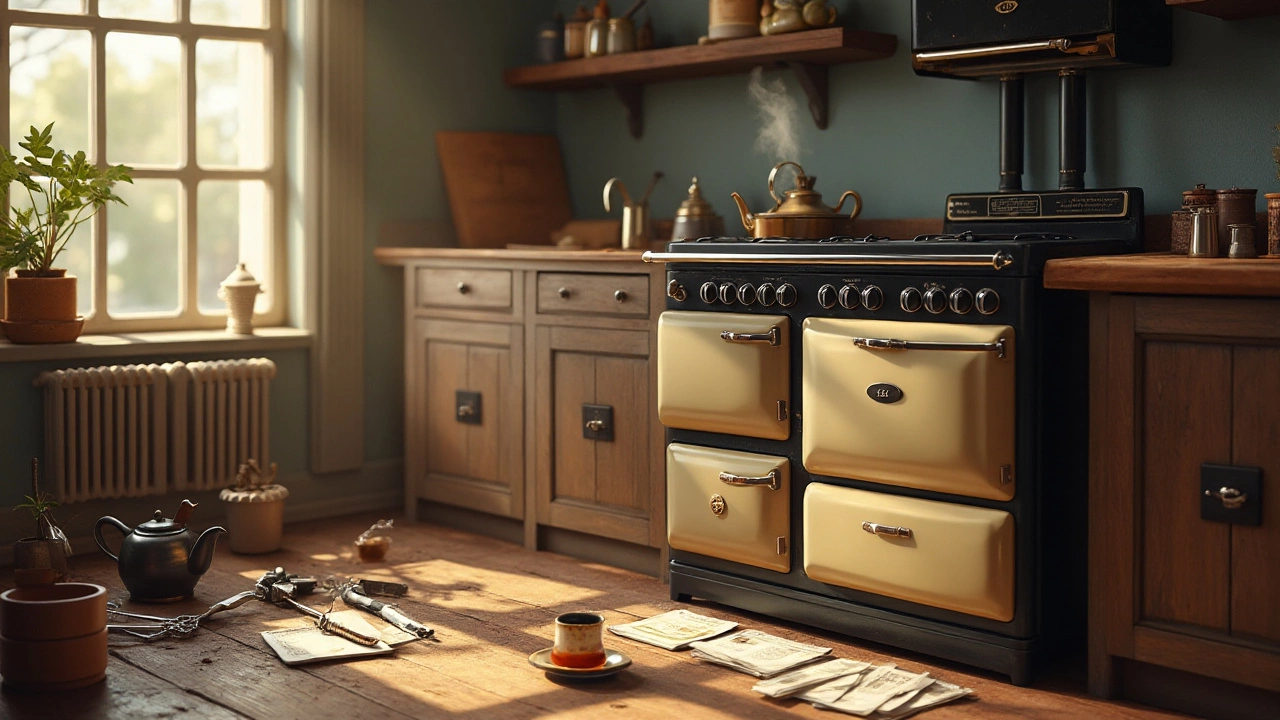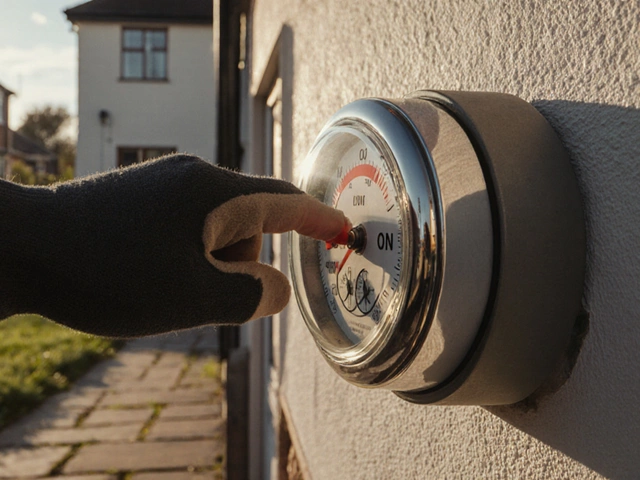The trusty cooker, a powerhouse in any kitchen, sometimes hits a snag. The crucial question is: can it be repaired? In many cases, the answer is yes. Cookers can face several hiccups, from inconsistent heating to stubborn burners refusing to ignite. Before you despair at the thought of replacing a cooker, understanding the likely culprits and how they can be repaired is essential.
Whether the issue is minor or requires professional intervention, distinguishing between these scenarios can save both time and money. This guide delves into common problems you might encounter with your cooker, offering insights into what can likely be fixed with a bit of elbow grease and when it's best to call a technician. Additionally, we’ll touch upon some savvy tips to help keep your cooker in peak condition, reducing the risk of future issues and extending its life.
Common Cooker Problems
As with any appliance, a cooker isn't immune to wear and tear over time. One of the most widespread issues cooker repair technicians see involves inconsistent heating. It often starts subtly, with dishes that take longer to cook or come out unevenly done. This problem often stems from a malfunctioning thermostat or a damaged heating element, both critical components responsible for regulating and distributing heat. Fortunately, identifying such problems early can save you from a complete breakdown later. By recognizing minor performance changes, you ensure that any necessary adjustments or repairs are made promptly, keeping your cooker in top shape.
Ignition issues are another prevalent problem, especially with gas models. It’s frustrating when the burner clicks repeatedly but refuses to light, often disrupting your meal prep routine. Common reasons for this hiccup include food debris blocking the pilot or igniter or a faulty ignition switch. Regular cleaning of the burners can sometimes resolve the problem, but if a faulty switch is the cause, seeking professional help might be the best course of action. A technician can easily replace these parts, thus quickly reviving the functionality of your trusted kitchen companion.
"Regular maintenance is your cooker’s best friend," says John Dawson, a renowned appliance expert. "The time spent to clean and check your devices will reward you with years of seamless service and fewer instances of breakdowns."
A sudden inability to maintain a steady temperature is another common complaint. When ovens fluctuate drastically between baking cycles, it often signals a failing oven sensor or a compromised oven door seal. Replacing these parts might seem daunting, but they are crucial to restoring the appliance’s full functionality. It's also wise to routinely evaluate the seal around the oven door; gaps often lead to heat escaping, making your cooker inefficient and potentially disrupting your cooking endeavors.
Strange noises emanating from cookers can be alarming too. From faint humming to pronounced rattles, these sounds often alert you to an obstruction or a part that has come loose. While these noises might seem minor, ignoring them can lead to bigger issues, such as damage to the motor or internal fan mechanisms. Gladly, a detailed inspection can help pinpoint the issue, allowing you to repair before it escalates.
Lastly, display or knob malfunctions are not uncommon. When electronic displays blink or become unresponsive, the root cause usually lies with faulty connections or overworked circuit boards. Similarly, knobs that are difficult to turn or feel loosely attached could result from wear over time or poorly aligned fittings. Oftentimes, these issues can be remedied with simple reset of the circuit board or by replacing damaged components.
Can You Repair It Yourself?
When faced with a cooker that's on the fritz, the immediate reaction might be to panic. But take a deep breath because many cooker repair issues are quite straightforward and can be tackled without calling a professional. First, identifying the problem is crucial. If your cooker is not heating evenly, it might be a result of faulty heating elements or a damaged thermostat. Such parts can often be replaced with a bit of patience and guidance. One might imagine that opening up a cooker is like navigating a maze, but with a few well-placed instructions and a bit of courage, you can manage.
"A surprising number of household appliances break down, not because they are truly faulty, but due to accumulated dirt and neglect." - Appliances MonthlyThe familiar, rhythmic click of a gas cooker failing to ignite may suggest an issue with the ignition switch or electrode. This can typically be solved by cleaning or replacing these components. To start, consult your cooker’s manual for the specific parts and diagrams—an invaluable resource that can save considerable time and effort. A balance between careful examination and reliance on documentation is key to effective appliance repair.
Before diving into repairs, equip yourself with some basic tools. A set of screwdrivers, pliers, and a multimeter are indispensable for any fix cooker endeavor. Many cookers have a series of screws securing their outer panels that must be removed to access internal components. Another imperative is ensuring safety: disconnect your cooker from power sources, be it electrical or gas, to prevent any accidents. A thoughtful approach involves checking the hobs or burners at each step, ensuring that each component functions properly before reassembling the unit. This modular method ensures no stone is left unturned.
If you're unsure at any point, numerous online communities thrive by sharing tips and experiences about various cooker repair scenarios. These user-led forums are goldmines for niche fixes, complete with images and videos, which can guide you through the process. Following this, diligently test your cooker in a controlled environment once repairs are complete, observing its performance for consistency in heating and operation. Should a repair seem beyond your skill, it’s wise to recognize your limits and call a professional to avoid exacerbating the issue.
Interestingly, according to the Consumer Electronics Association, approximately 33% of appliance owners attempt some form of self-repair before contacting a technician. This statistic underlines the human instinct to tinker and fix. However, while this is encouraging, ensure your attempts don’t void any warranties or complicate future service options. Discretion can be a mighty ally in not just boldly fixing issues but knowing when to pause and call for help, thus ensuring your cooker remains in prime working order without unnecessary setbacks.

When to Call a Professional
Deciding when to call a professional for your cooker repair can be challenging, especially when every situation seems urgent in the moment. First, consider the complexity of the issue. If your cooker emits a noticeable gas leak odor, involves faulty electrical connections, or fails to work entirely after basic troubleshooting, it's crucial to contact a professional immediately. This not only assures your safety but also protects your appliance from further damage. Attempting complex fixes without specialized knowledge can exacerbate problems and end up costing more in repairs or replacements.
A reputable repair technician brings skill and experience to pinpoint problems that might not be obvious to an untrained eye. For instance, dealing with a persistent flame issue might require an understanding of mixed gas types, regulations, or mica sheets in gas cookers. Electrical issues demand knowledge about elements, wiring, and intricate component examinations. Professionals also have the diagnostic tools necessary to test valve systems and other parts efficiently, ensuring a comprehensive repair.
Sometimes not fixing the problem early on can lead to costly consequences. Knowing how to correctly assess when your efforts are insufficient allows you to save time and money. Professionals bring the added value of ensuring warranties remain valid and offer advice on maintenance or appliance upgrades. They help navigate the ever-developing realm of appliances, giving potentially energy-saving advice or enhancing your current setup. A noteworthy piece of advice comes from a seasoned expert in the appliance industry who said, "With innovations in cookers, what was true five years ago doesn't always hold today. Expert input can make the difference between functional and exceptional."
Appliance repair professionals also offer the advantage of potentially grabbing parts at a better price than what consumers can. In many cases, they have relationships with suppliers that keep your costs lower. If you've tried multiple quick fixes and the problem persists, it might be a sign that deeper, concealed functionality issues exist. Remember, knowing when to step back and let an expert take over can be the smartest decision in maintaining the longevity of your cooker. Moreover, professional services often come with guarantees, providing peace of mind and safeguarding your appliance against new complications shortly after the fix.
Maintenance Tips
Maintaining your cooker isn't just a task; it's an art that can prolong its life and efficiency significantly. Regular upkeep can help identify potential issues before they become major problems, saving you both hassle and expense. One of the simplest yet most effective maintenance habits is keeping the cooker clean. After each use, make sure to wipe down the surfaces to prevent any food or grease buildup. Accumulated grime can not only affect the appliance's performance but also pose a fire risk. Using a soft cloth and a mild cleaner will help maintain its pristine condition without damaging the surfaces.
Regular inspections should become part of your cooker care routine. Check the burners for any unusual wear or blockage. If a burner fails to ignite or the flame seems weaker than usual, it could indicate a clogged burner or igniter. In such cases, it often helps to gently clean the ports using a thin wire or a toothpick. Paying attention to the knobs and dials is also crucial, as they often give the first warning signs of internal issues.
Another aspect of maintenance involves vent inspection. Poor ventilation can lead to inefficient heating and may even affect your energy consumption. Ensure that the vent is clear of obstructions and that the exhaust fan is working correctly to remove heat and odors effectively. An annual check by a professional might reveal underlying issues that a cursory glance could miss, ensuring your cooker works smoothly and efficiently year-round.
"A well-maintained kitchen appliance is key to a harmonious kitchen environment," emphasizes renowned appliance expert John Burwick. Compressor Magazine frequently cites his advice in their maintenance guides.
Dealing with electrical components of a cooker requires caution and perhaps professional oversight. Ensure that connections are tight and free of corrosion. It's best to unplug the appliance when examining these areas to prevent any electrical hazards. Ensure your connections are dry and protected from moisture, reducing the risk of shorts or other electrical issues.
On the statistical side, a study conducted by the Appliance Maintenance Institute found that 70% of cooker malfunctions could be prevented by consistent care and timely intervention. Maintaining your cooker is not just about prolonging its life; it's about optimizing its performance so that every meal you cook is just as good as the last.




